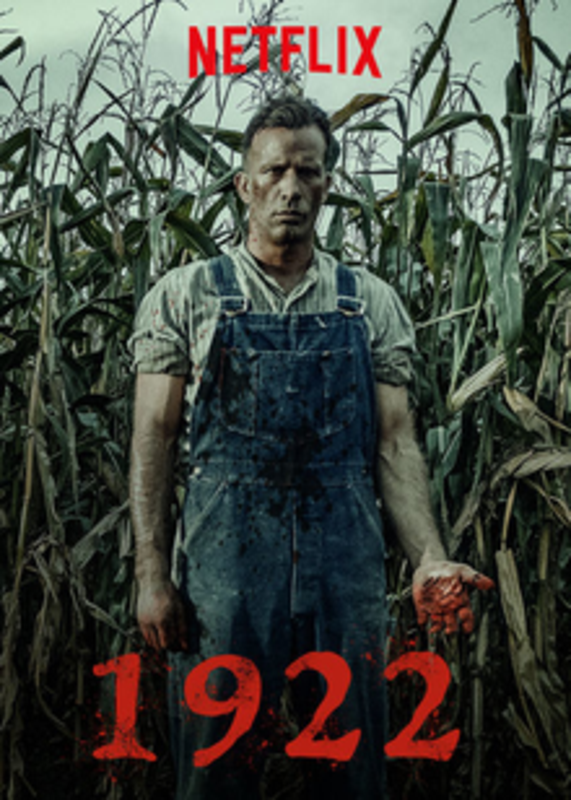1922, a Netflix original production based on a short story by Stephen King, feels surprisingly fresh, but falls short of moving beyond the clamoring created by a myriad of releases simultaneously demanding our attention.
Unlike IT, 1922 isn’t so much a horror story as much as it is a macabre historical drama. Set in the eponymous year, 1922 purports to be a confessional, recounting the events that led Nebraskan farmer Wilf to murder his wife.
Wilf’s wife Arlette (who has recently inherited a nearby plot of land almost twice the size of Wilf’s) argues with Wilf about whether or not to move. Wilf wants to consolidate the two plots into a larger farm; Arlette wants to sell both and move to the city. Arlette, however, is determined to take her and Wilf’s son, Henry, to the city. Henry wants to stay behind for Shannon, a local girl he’s fallen in love with.
Outraged with Wilf’s stubbornness, Arlette does the only sensible thing she can think of, and lawyers up.
Outraged with what he sees as Arlette’s conscious effort to deprive him of a life that he considers rightfully his, Wilf does the only sensible thing he can think of, and begins to poison his son’s mind so the latter will agree to help Wilf kill Arlette.
That’s a plot in and of itself. Perhaps not a particularly inventive plot, but it’s a plot nonetheless. Arlette wants to leave. Wilf wants to stay. Alas, there can be only one.
Not content to explore the intricacies of the human psyche as it contemplates murder, 1922 blasts past every interesting instance of self-reflective drama imaginable and plunges head-first into matricide with wild abandon. What’s supposed to be a quick affair leaves Wilf and Henry scrubbing blood off the bedroom floor in what’s essentially a CSI montage, but without any law enforcement present. They get rid of the body by dumping it in a well which Wilf later bricks up.
What’s worse is the last half of the movie, wherein Henry becomes increasingly distant with his girlfriend (killing your mother will do that to you) and, in what’s seemingly an attempt to distract us from the fact that all the conspiracy and murder that has already taken place is boring at best, rats begin to swarm the house.
It’s difficult to guess why the plot reaches the heights of silliness that it does, and why such unnecessary characters are introduced, like a banker whose only role seems to be to come snooping around and leave, giving viewers an excuse not to wonder why more diligent investigation didn’t take place.
Henry and his now-pregnant girlfriend flee the farm after a heated discussion with Wilf, leaving him to stew, contemplate his situation, and finally get around to fixing that car in the garage. No attempt is really made at diving into the emotional reality of the events, which is perhaps why the movie comes off as so rote. We hardly care when, after a brief stint as robbers, Henry and Shannon (who is pregnant while all of this takes place) rip a page out of Shakespeare’s book, and go out Romeo & Juliet style: full of angst, and with a completely avoidable suicide.
The one saving grace of this adaptation is that, as he writes his confession in a motel surrounded by rats, Wilf is confronted by his dead family.
Look, producers only care that people watch things, even if they’re watching to satisfy their own morbid curiosity. (Why else would Human Centipede have a sequel?) If nobody watched it, they wouldn’t make more of them.
Spare yourselves having to go through another one of these lazy adaptations in two months’ time, and ignore 1922, or at least tweet angrily about it.


